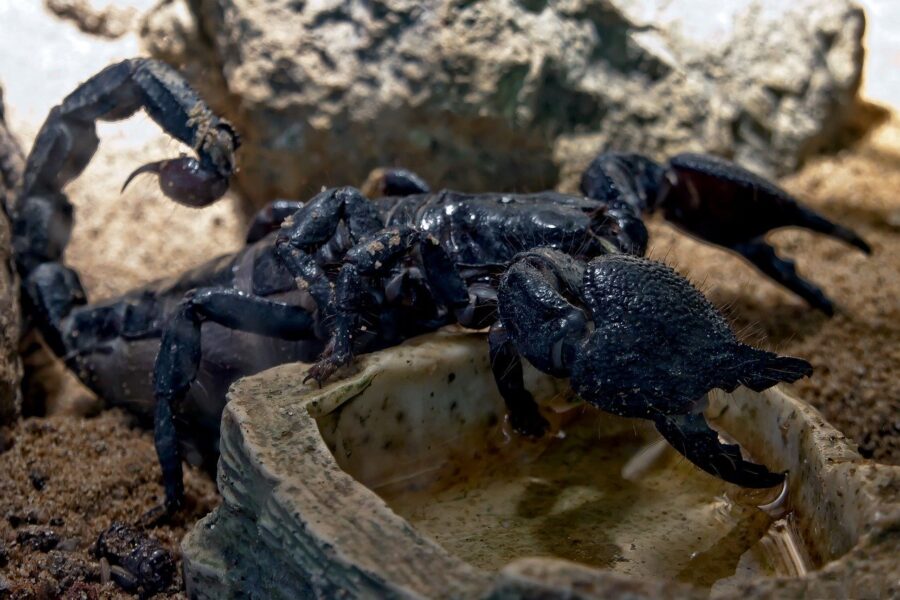A Storm Of Scorpions Killed Three And Injured Hundreds Of People In Egypt
Egypt is dealing with a major problem with scorpions following relentless storms in the area. It's led to hundreds of bites and even deaths. The country has had to divert medical professionals to deal with the problem.
This article is more than 2 years old

Sharknado has given people nightmares of getting sucked into a tornado infested with man-eating sharks since 2013. While such a freak of nature won’t happen in real life, thank goodness, people on the other side of the world are dealing with the aftermath of a severe weather event involving a different vicious creature: scorpions. You read that right, three people have died and nearly 500 were injured after getting stung by the poisonous mini desert crabs following a storm in the governorate of Aswan, in Southern Egypt.
According to IFL Science, Aswan had been dealing with a series of heavy rain and flooding within the past few days, which disturbed the nests of scorpions living in the region. The floods flushed the insects out of their underground desert homes and prompted them to take refuge on higher ground, even crawling their way into people’s homes. Egyptian media outlet Al-Ahram reported on Saturday that the animal infestation injured 453 people and killed three people after getting stung with venom.
Aswan is home to a species of scorpions known as the Arabian fat-tailed scorpion (Androctonus crassicauda). These arachnids carry venom that is a mix of neurotoxins, cardiotoxins, and possibly mycotoxins. Anyone who is unlucky enough to get stung by these vicious critters will experience symptoms of swelling, redness, and intense pain from the sting. Even worse, the venom is a fast-acting poison that will also cause the victim to suffer a heart malfunction, internal bleeding, visual disturbances, and respiratory problems, which will be fatal unless the victim seeks treatment within an hour of getting stung.
This Egyptian region experiences an average of 0.4 inches of rain a year, but several days of not only rainfall but also flooding and hail displaced scorpions from their burrows and placed them in areas where they came into close contact with people, especially their own homes. According to Mada, the storms also destroyed buildings, washed-out roads, uprooted trees, and cut off electricity in parts of Aswan. Hail is an extremely rare weather phenomenon in Aswan.

The majority of the people who were stung by the scorpions had to be hospitalized, and doctors had to be moved from COVID-19 vaccination units to respond to the mass emergency. Health Ministry spokesperson said in a statement on Facebook that Aswan distributed more than 3,000 doses of antivenom serum to treat the injured victims in local hospitals and clinics. Ehab Hanafy, the undersecretary of the health ministry in Aswan, said that extra doses of antivenom were dispatched in medical units in villages or near the mountains and the desert. Despite the fact that three people died as a result of the scorpion infestation, Aswan Gov. Major-General Ashraf Attiya denied that their deaths were caused by the stings.
A scorpion storm may sound like one of the plagues God wrought upon the Pharoah Ramses if you read the Bible or watched The Prince of Egypt. According to Mahmoud Shaheen, director of the Center for Weather Analysis and Forecasts at the Egyptian Meteorological Authority, the only logical explanation for that is climate change, citing the rare occurrence of hail among the many other new severe weather patterns affecting the region. Approximately 5,000 people around the world die of scorpion stings each year, but if Egypt deals with any more scorpion floods because of climate change, the annual death toll may shoot up.












